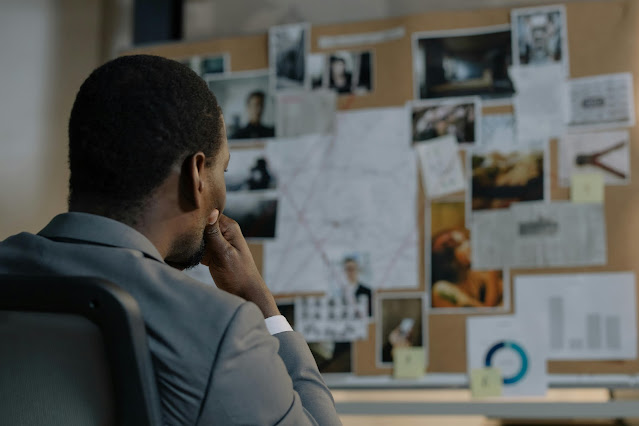Imagine uncovering a hidden scandal that could change lives. That’s the power of investigative journalism. It’s not just about reporting the news; it’s about digging deep to reveal truths that others want to keep buried. If you’ve ever wondered what it takes to shine a light on the dark corners of society, you’re in the right place.
In this article, I’ll explore the essential skills and qualities that make a successful investigative journalist. From relentless curiosity to ethical considerations, each aspect plays a crucial role in the quest for truth. With misinformation spreading faster than ever, understanding the importance of this field is vital for all of us. Join me as we delve into the world of investigative journalism and discover how it holds power accountable and informs the public.
Overview of Investigative Journalism
Investigative journalism serves as a critical pillar of democracy by providing in-depth reporting on important issues. This field involves rigorous research, thorough analysis, and a commitment to uncovering the truth, often about powerful entities or controversial subjects. Investigative journalists dig deeper than standard news reporting, focusing on hidden injustices or corruption through painstaking efforts.
The process of investigative journalism typically involves several key components:
Extensive Research: Investigative journalists delve into public records, reports, and databases to gather relevant information. They often utilize Freedom of Information Act (FOIA) requests to access government documents and records that are not readily available to the public.
Investigative journalism requires a blend of skills. Strong analytical abilities enable journalists to evaluate complex data and identify patterns. Exceptional writing skills ensure that findings are communicated clearly and effectively. Furthermore, effective communication skills help in interviewing sources and presenting findings to the public, who rely on these stories for transparency.
Ethical considerations also shape the practice of investigative journalism. Journalists adhere to strict ethical guidelines to protect their sources and ensure accurate reporting. This commitment fosters trust between journalists and the communities they serve, thereby enhancing the field's credibility.
By holding powerful entities accountable, investigative journalism plays a vital role in revealing the truth and promoting informed public discourse. This branch of journalism remains crucial in the fight against misinformation and the preservation of democratic values.
Key Skills Required
Investigative journalism demands a unique blend of skills that enable journalists to effectively uncover hidden truths. These skills encompass research, communication, and analytical thinking. Mastering these tools empowers me to navigate complex stories and engage with diverse sources.
Research Skills
Research forms the backbone of investigative journalism. I rely on various resources, including public records, databases, and academic articles, to gather information. Utilizing tools such as the Freedom of Information Act (FOIA) allows me to obtain documents from government agencies, revealing crucial details. A precise approach to research includes:
Thorough Fact-Checking: Ensuring all obtained information is accurate before publishing, which builds credibility with my audience.
Strong research skills not only provide essential facts but also help identify patterns and potential leads, allowing me to pursue stories with tenacity.
Communication Skills
Effective communication stands as a pivotal skill in my investigative toolkit. Engaging with sources often requires me to navigate challenging conversations and establish trust. I focus on:
Active Listening: Demonstrating genuine interest in a source’s story encourages them to share vital insights.
Clear written communication also holds significant importance when composing articles. I strive to present well-organized narratives that guide readers through complex information seamlessly. An ability to adapt my communication style based on the audience enhances my reporting's accessibility.
Analytical Thinking
Analytical thinking enables me to dissect intricate problems and synthesize information effectively. I assess data, identify discrepancies, and make connections that may not be immediately apparent. Key components of analytical thinking include:
Critical Evaluation: I critically review the information gathered during research, questioning its relevance and potential biases.
Applying analytical skills allows me to draw informed conclusions and present a compelling narrative supported by factual evidence. This critical assessment helps illuminate broader societal issues, fostering informed public discourse.
By honing these key skills, I strengthen my ability to conduct thorough investigative journalism. These competencies not only enhance the quality of my reporting but also contribute to the vital role investigative journalism plays in upholding democratic values.
The Process of Investigative Journalism
Investigative journalism requires a systematic approach to uncovering the truth. Each stage plays a critical role in ensuring that reporters deliver accurate and compelling stories.
Identifying a Story
Identifying a story involves recognizing issues with societal significance. I focus on exploring anomalies, public records, or tips that suggest wrongdoing or misconduct. Potential stories often emerge from:
Community concerns: Listening to grievances from individuals can highlight pressing issues.
Data anomalies: Reviewing statistical discrepancies can signal problems needing investigation.
Whistleblower tips: Speaking to insiders can provide insights into hidden misconduct.
My goal during this phase is to gauge whether there's sufficient evidence to pursue further.
Gathering Information
Gathering information is vital for developing a thorough understanding of the story. I utilize various techniques to collect data, including:
Interviews: Engaging with sources helps me clarify details and collect firsthand accounts.
Public records: I often request documents via FOIA requests to access critical government and organizational data that may reveal misconduct.
Surveillance: When necessary, observing locations or activities can provide context and support claims.
This stage demands diligence and creativity since every piece of information contributes to the larger narrative.
Fact-Checking
Fact-checking represents a crucial step in ensuring accuracy and maintaining credibility. I implement multiple strategies to verify information:
Cross-referencing: I compare facts against various reliable sources to validate their authenticity.
Expert consultations: Engaging with subject matter experts can clarify complex information, allowing for deeper understanding.
Document verification: I meticulously inspect documents for authenticity, ensuring no forgery or manipulation occurs.
An unwavering commitment to fact-checking helps safeguard the integrity of my reporting while fostering public trust. Each detail matters, and thorough verification reinforces accountability in journalism.
Challenges in Investigative Journalism
Investigative journalism faces numerous challenges that can hinder the quest for truth. These obstacles range from legal hurdles to personal risks journalists encounter while pursuing their stories.
Legal and Ethical Considerations
Legal and ethical considerations loom large in investigative journalism. Journalists often navigate a complex landscape of laws and regulations that can constrain their work. Adhering to ethical standards is essential for maintaining credibility and public trust. I always prioritize safeguarding sources, ensuring confidentiality whenever necessary.
Protecting whistleblowers helps uncover abusive practices and corruption, yet it also invites legal scrutiny that can intimidate journalists. Journalists frequently confront threats of defamation lawsuits and government censorship, which can stifle reporting.
Risks and Safety Concerns
Risks and safety concerns are ever-present in the field of investigative journalism. Many journalists undertake investigations that involve powerful entities, making them vulnerable to intimidation or even violence. Journalists often face physical threats when covering sensitive topics such as crime, corruption, or political scandals.
I take various precautions to ensure my safety. These include:
Employing digital security measures to protect communication with sensitive sources.
Engaging legal counsel to navigate the legal landscape while pursuing stories.
Effective safety protocols not only protect journalists but also enable them to uncover the truth without fear of repercussions.
Conclusion
Investigative journalism is more than just a profession; it's a commitment to uncovering the truth and holding those in power accountable. The skills and ethical standards required in this field are vital for maintaining a healthy democracy. I've seen firsthand how rigorous research and effective communication can shine a light on critical issues that affect our communities.
As I continue to explore this fascinating world, I'm reminded of the importance of supporting investigative journalists who bravely tackle complex stories. Their work not only informs the public but also inspires others to seek the truth. The pursuit of transparency and accountability is essential for a just society, and I believe we all have a role in championing this vital endeavor.
Frequently Asked Questions
What is investigative journalism?
Investigative journalism is a form of journalism that seeks to uncover hidden truths and hold powerful entities accountable. It involves thorough research, in-depth reporting, and ethical considerations to inform the public and combat misinformation.
What skills are essential for investigative journalists?
Key skills for investigative journalists include strong research abilities, effective communication, and analytical thinking. These skills enable journalists to investigate complex issues, interact with sources, and present clear narratives based on factual evidence.
How does investigative journalism contribute to democracy?
Investigative journalism serves as a critical pillar of democracy by reporting on significant issues and holding those in power accountable. It ensures that the public is informed, which is essential for a functioning democratic society.
What challenges do investigative journalists face?
Investigative journalists face various challenges, including legal hurdles, personal safety risks, and ethical dilemmas. Navigating these complexities requires a deep understanding of laws, a commitment to ethical standards, and safety protocols to protect themselves and their sources.
What is the process of investigative journalism?
The investigative journalism process typically includes identifying a compelling story, gathering information through interviews and public records, and rigorously fact-checking to ensure accuracy. This systematic approach helps journalists uncover the truth effectively.



